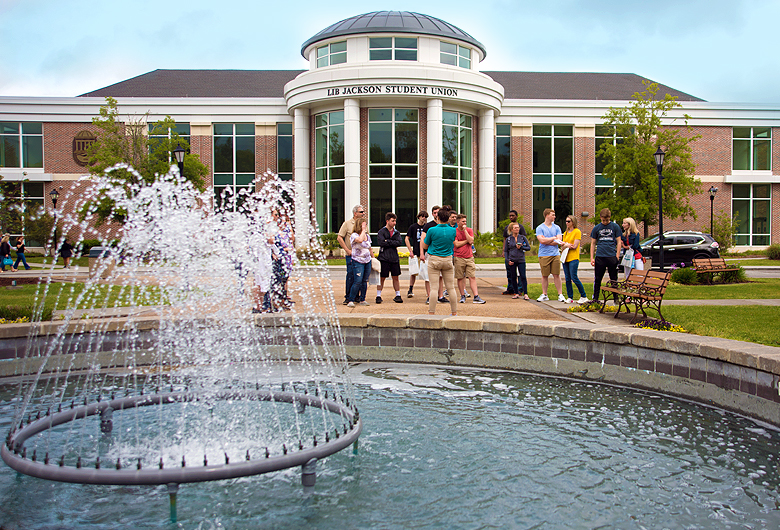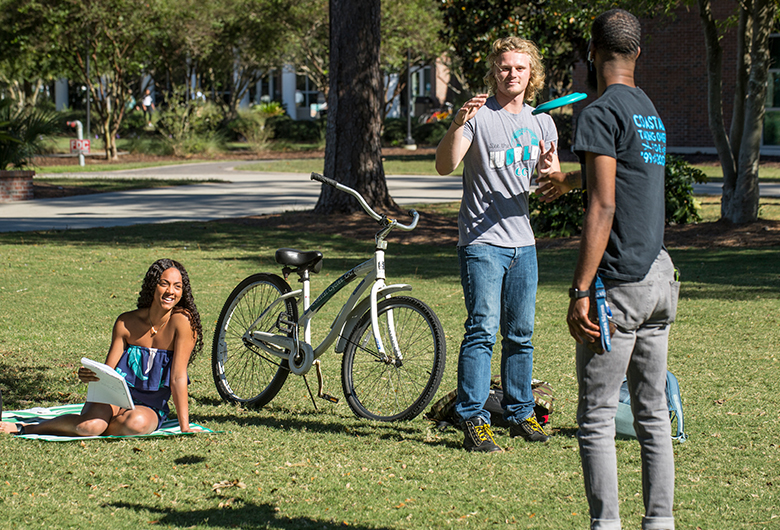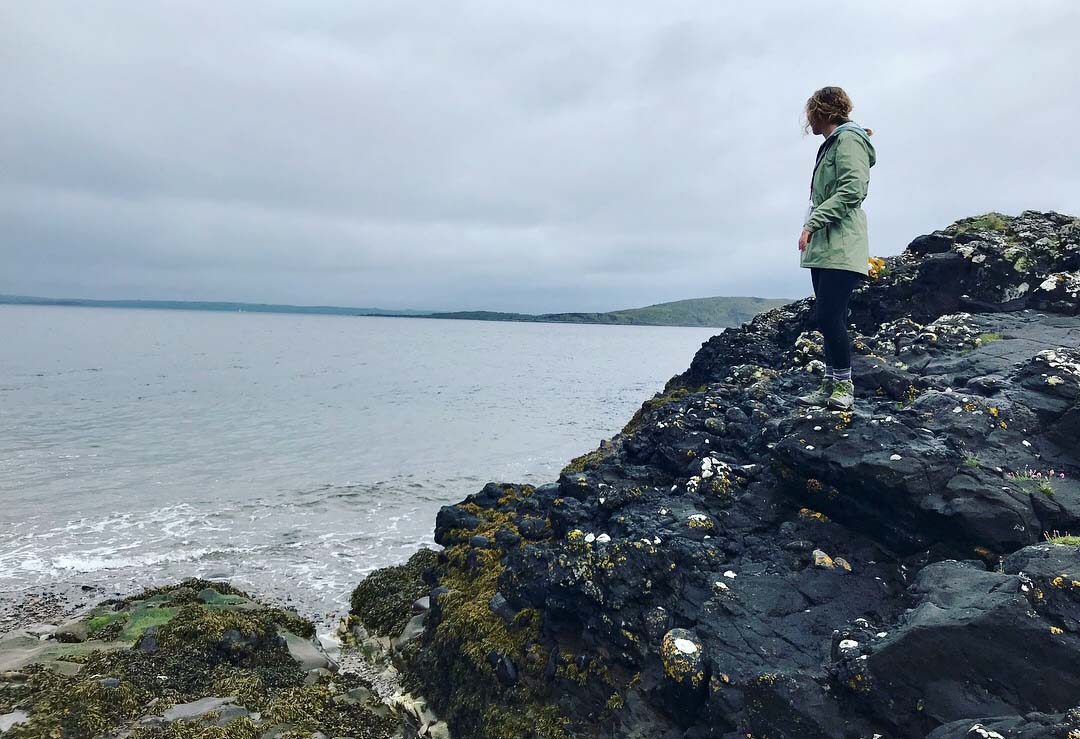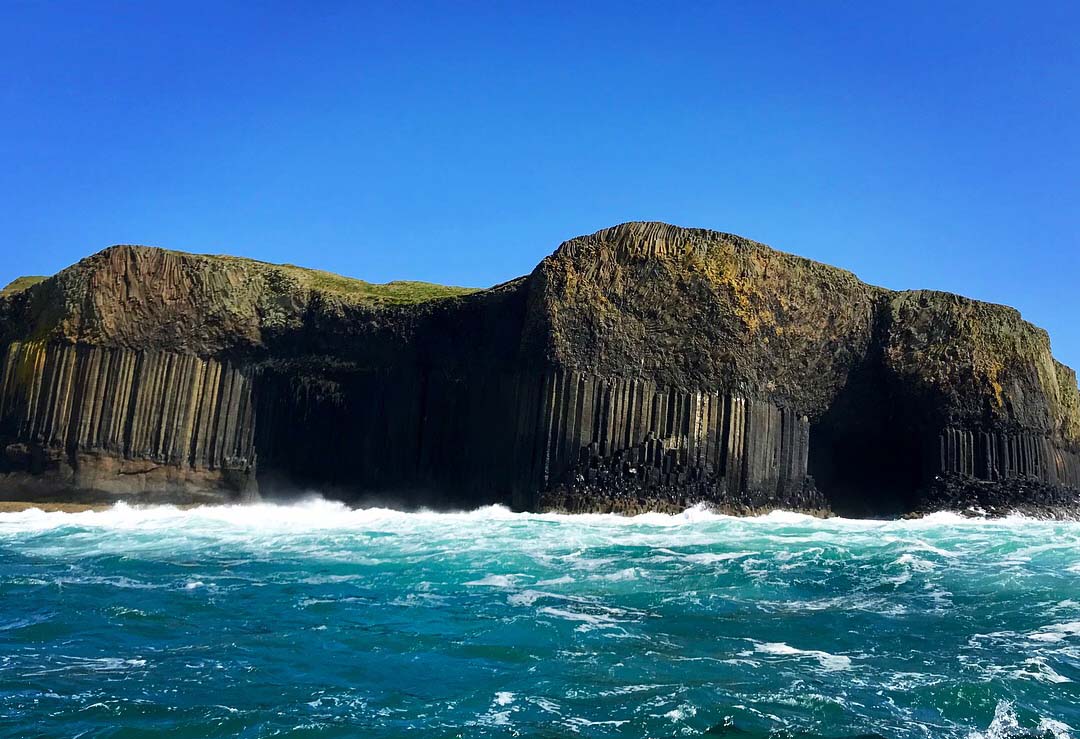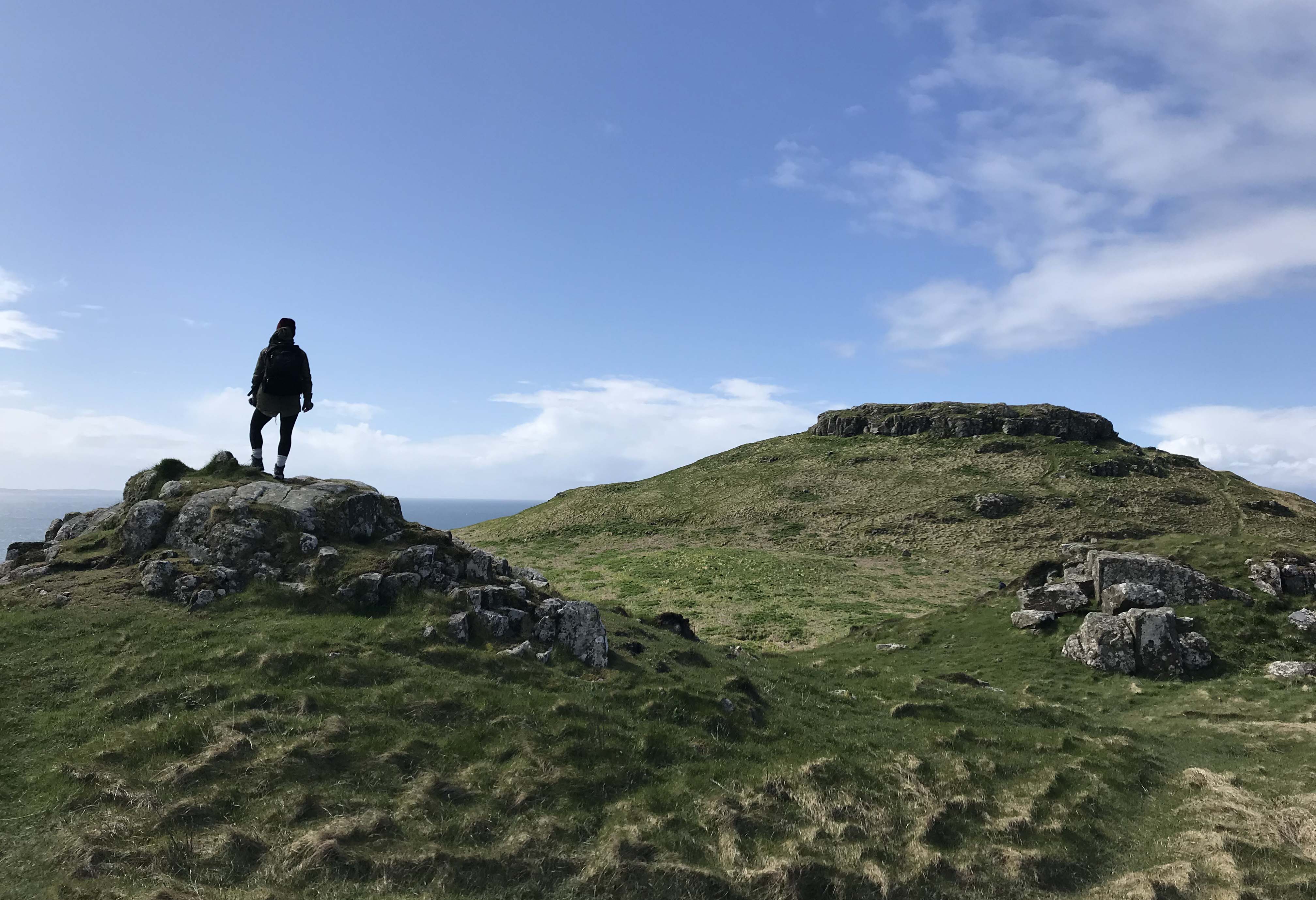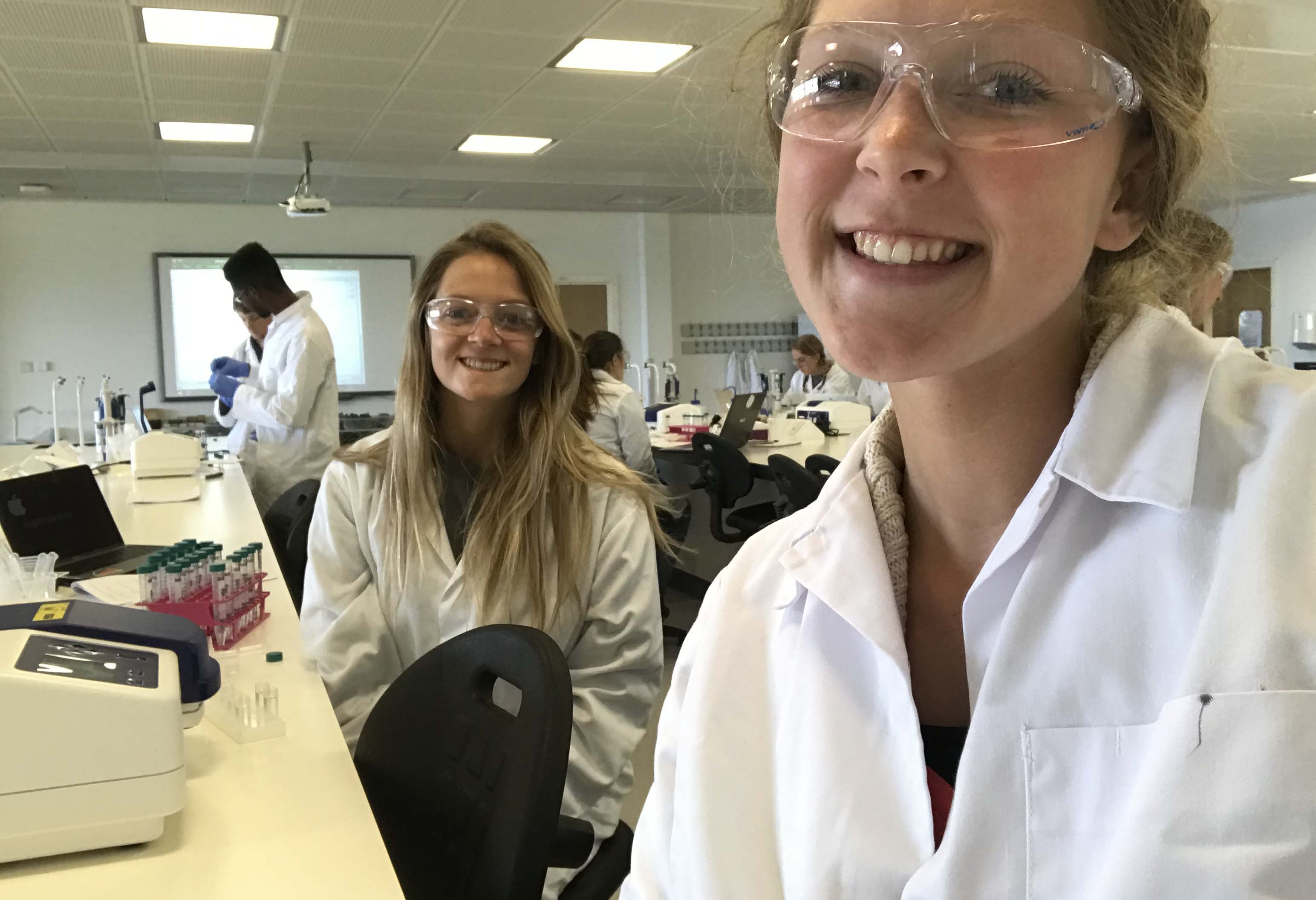Field Methods in Oceanographic Data Analysis at the Scottish Marine Institute
Follow us on Instagram! @ccu_scotland
Program Details
- Location: Oban, Scotland, United Kingdom
- U.S. State Department Travel Information
- U.S. State Department COVID-19 Information
- Program Dates: May 8 - May 29, 2022
- Travel Dates: May 8 - May 29, 2022
- Cost to Participate: MSCI: $4448 plus tuition
- Online Application
This faculty-led program will take a select group of Chanticleers to the Scottish Marine Institute (SAMS; www.sams.ac.uk) in Oban, U.K., for three weeks of international study. SAMS is a world-class research and teaching center with areas of emphasis in Arctic Seas, Dynamic Oceans (climate research), and Marine Renewable Energy. Students complete a 3/1 credit MSCI laboratory course while abroad, learning how to work with oceanographic data: how to acquire data (online or shipboard sampling), process seawater samples using analytic techniques, process data using appropriate software, and present data to a scientific audience. Each student will choose a type of data to process, interpret, and display in an oral presentation at the end of the course.
This program leverages the local setting by inviting guest lecturers to introduce students to the types of data they use. The group will compare and contrast data from Long Bay with data from the SAMS, and students will take a sampling cruise aboard the Research Vessel Seol Mara to collect physical measurements from Loch Etive for analysis.
 Outside of the classroom, students have the opportunity to explore the highland town of Oban and the surrounding area known as the "Gateway to the Islands." Day trips to nearby islands for research and sightseeing include excursions to Mull, Iona, Staffa, and Kerrera. Students are able to tour several castles and enjoy the highland spring!
Outside of the classroom, students have the opportunity to explore the highland town of Oban and the surrounding area known as the "Gateway to the Islands." Day trips to nearby islands for research and sightseeing include excursions to Mull, Iona, Staffa, and Kerrera. Students are able to tour several castles and enjoy the highland spring!
Physical Requirements: Extensive walking in both urban and rural (rocky) areas. Participation in a day-long cruise aboard a research vessel, ferry crossings and small boat cruises in the open ocean will be required.
Course Information
Students must enroll in either MSCI 315 and MSCI 315L.
MSCI 315 and MSCI 315L Field Methods in Oceanographic Data Analysis. (3 credits + 1 credit). (Prereq: MSCI 111; MATH 131 or equivalent)
This course is an introduction to oceanographic data collection and analysis at a field station. The lecture will include an introduction to data processing and analysis using computer software, using examples and case studies drawn from the ongoing oceanographic research at the field station. Students will learn how to import, visualize, analyze and interpret oceanographic data including Eulerian and Lagrangian time-series, profile data and 2-D bathymetric and remote sensing data. A large case study will be the analysis of the data collected during the laboratory portion of the class.
Students will have an opportunity to learn skills at a research station with environmental conditions that are different from CCU. Collecting oceanographic data in the inner Scottish seas and lochs is a completely different experience from doing so in the marshes and bays near CCU; it is beautiful and harsher at the same time. It is much more like the environments that Marine Science students will experience in parts of the world that are dealing with the effects of climate change. This will give students the experience of setting up the experiments and protocols to collect the data. Very importantly, as well, students will have the opportunity to interact with Marine Science faculty and students at the institute. Since science is a global enterprise, learning how to make connections with and work with scientists in other countries will be a valuable skill.
Instructor: Louis Keiner
Accommodations and Meals
The group will stay in dorm-like accommodations in the city of Oban. The accommodations are run by the Oban Backpackers Plus hostel, and rooms accommodate two to four students each with shared bathrooms. Amenities include free Wi-Fi, continental breakfast, cooking facilities, and linen service. The hostel is within easy walking distance of the entire downtown.
During class days, box lunches are provided by SAMS. For dinner and weekend meals, students are free to enjoy the wide array of options available in Oban.
Program Leaders
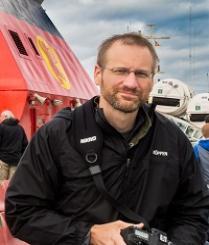 Louis E. Keiner, Associate Professor, Department of Marine Science
Louis E. Keiner, Associate Professor, Department of Marine Science
lkeiner@coastal.edu, 843-349-2226
Louis Keiner is an associate professor of physics and physical oceanography at Coastal Carolina University. He earned his Ph.D. in marine science from the University of Delaware, and was a post-doctoral researcher at NOAA before coming to CCU. His research focuses on using satellite sensors to observe and analyze processes in the coastal ocean. He has served as director for CCU’s Center for Effective Teaching and Learning and as chair of the Department of Chemistry and Physics. He regularly teaches both introductory and advanced physics, including Geophysical Fluid Dynamics and Remote Sensing. Keiner has also traveled extensively in Scotland, photographing the country (http://www.tsunamiphoto.com/scotland), and is happy to work with students on their travel photography skills
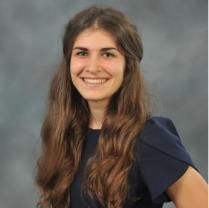 Victoria DePalma, Assistant Professor HTC Honors College
Victoria DePalma, Assistant Professor HTC Honors College
vdepalma@coastal.edu, 843-349-2774
Dr. Victoria DePalma is an assistant professor in the HTC Honors College at CCU and earned her Ph.D. in Environmental Science from the University of Idaho. Her research focuses on how people perceive environmental issues and how to communicate environmental ideas more effectively across groups. To do this she creates, implements and analyzes nationally representative surveys, and runs workshops to determine how to improve upon cross-disciplinary collaboration. She aims to integrate science, values and the social sciences more effectively, and to incorporate interdisciplinary techniques in her teaching and research to better understand and address complex issues. Dr. DePalma teaches courses in environmental science and sustainability, as well as honors courses in environmental humanities and social science.



